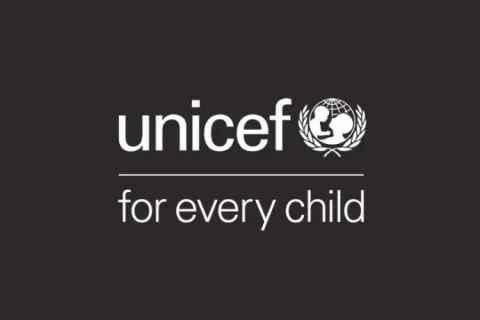6 months of war in Ukraine
Europe and Central Asia Regional Office Report

Highlights
After six months of devastation and displacement for the people of Ukraine, it is children who are suffering the deadly consequence of a brutal war not of their making. In areas across eastern and southern Ukraine, they continue to be caught in the crossfire of ongoing hostilities, while schools, hospitals, and other civilian infrastructure on which they depend continue to be damaged or destroyed. In the central and western parts of the country, children and their families have had to flee their homes, their lives uprooted and access to learning and essential services disrupted.
In any situation of conflict and displacement, children face increased risks of violence, exploitation and separation from family. The services and support on which they rely – safe places to play and learn, health care and clean water, warm clothes and shelter are no longer functional, available or are destroyed. The war in Ukraine is no exception. Yet while children now need protection and support more than ever, access to child and social protection, health, education and water and sanitation services has been severely reduced by the conflict’s destructive path.
The war has also caused enormous mental distress for children, who have witnessed family and friends killed and injured, their homes, schools and neighbourhoods shelled and burnt to the ground. Six months into this brutal conflict, children continue to live with fear, anxiety and the grief of losing loved ones, separation from family, forced displacement from their homes, isolation, and complete upheaval of their childhoods.
i OHCHR Ukraine civilian casualty update on 22 August 2022
Building on UNICEF’s unique position at the nexus of the humanitarian and development sectors, we are partnering with governments, United Nations and international organizations, local organizations, youth groups and communities who are working tirelessly on the frontlines of this response. In Ukraine, we are on the ground and have expanded our presence to 10 locations across the country to meet the immediate humanitarian needs of children and families. We work with 92 government and civil society partners to deliver at scale and reach as many children and families as possible.
In refugee-hosting countries, to respond to the needs of children, we are leveraging partnerships established through longstanding country programmes, relationships with governments, and a strong network of National Committees. UNICEF continues to expand our close relationships with municipal authorities, partner with NGOs and civil society organizations, and develop new multi- country relationships with key networks. We have also worked at pace to establish and scale up capacities to provide support in European Union countries bordering Ukraine. In Poland, for example, partnerships with local municipalities now enable UNICEF to reach more than 700,000 refugee children and women with essential services.
In more than 13 refugee-hosting countries, with well-established systems and service provision, UNICEF focuses on policy change and systems strengthening. Our strategic partnerships not only serve the immediate needs of Ukraine’s children and families, but they also contribute to strengthening national and local child protection systems, expanding pre-school and national education capacities, improving health systems, and integrating refugee children. This enables structural systemic changes that will provide improved support to all children, regardless of their origin, in these countries beyond this emergency.
Read the full report here.





